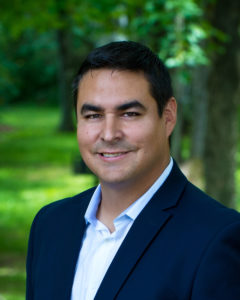New Faculty Focus: Brian McInnes
Position: Associate Professor, Civil Society and Community Studies, School of Human Ecology
Hometown: Wasauksing, Ontario
Educational/professional background: Teaching and Learning, Environmental Studies, Elementary Education, Indigenous Studies/Cultural Anthropology.
 Previous position: Associate Professor of Education, University of Minnesota–Duluth; University of Minnesota Distinguished Teaching Professor.
Previous position: Associate Professor of Education, University of Minnesota–Duluth; University of Minnesota Distinguished Teaching Professor.
How did you get into your field of research? I am currently engaged in community-based Indigenous language revitalization initiatives in northern Wisconsin and Minnesota. My interests also include holistic program evaluation (Duluth Public Schools language immersion programs) and environmental history and education (Great Lakes Water Walk movement).
Much of my drive comes from the experience of living and working in Great Lakes Ojibwe communities or traditional territories. As a former professional educator and administrator (PK-12), improving systems of teaching and learning for students of all ages continues to be a part of my everyday practice and inquiry.
What attracted you to UW–Madison? UW–Madison’s reputation as a world-class research and teaching school makes it stand out from all others. The institution’s commitment to stand as an ally and supporter of regional Native Nations was a powerful draw. The trees also helped.
What was your first visit to campus like? I arrived during a class change. The energy was overwhelming but inspiring. I appreciated the general sense of welcome and kindness that characterized campus overall.
What’s one thing you hope students who take a class with you will come away with? That we all have something to learn from each other, and uniquely contribute to the world. The challenge is to find what that is.
Do you feel your work relates in any way to the Wisconsin Idea? My research, service, and teaching work is inherently dedicated to the Wisconsin Idea. In an age when Native languages like Ojibwe or Potawatomi are critically endangered, there is a strong imperative to ensure our efforts not only preserve but effectively teach. There is a place for Indigenous languages, stories, and cultures in every home throughout the state. Indigenous understandings of the world can do much to help us live in a more sustainable and interculturally rich way.
What’s something interesting about your area of expertise you can share that will make us sound smarter at parties? Ojibwe, like perhaps all of Wisconsin’s native languages, is extraordinarily complex and beautiful. Imagine any given verb having several thousand unique forms and expressions. Indigenous languages are also incredibly adaptive. Not only do they give brilliant explanation to the many place-names on Wisconsin maps and roads, they can quite exactly describe and name anything in the modern world.
Hobbies/other interests: I am an avid hiker and water sports enthusiast. I enjoy bird watching, specifically large raptor identification.




